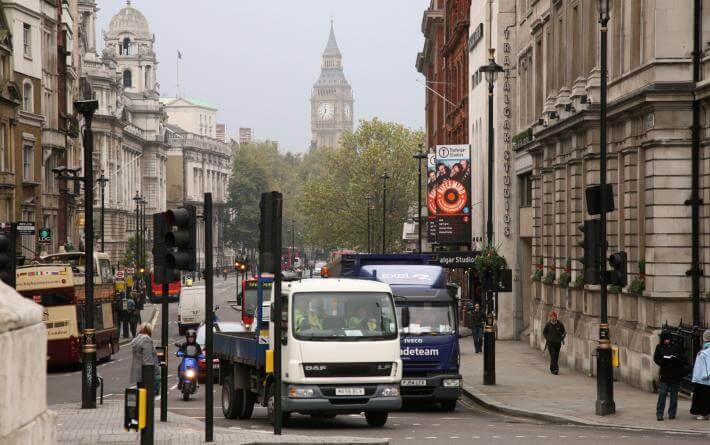Mayor's early clean air announcement challenges London's supply chain, says FTA

Tuesday 07 November 2017
The Freight Transport Association has reacted with concern to last week’s announcement by the Mayor of London of the introduction of the capital’s Ultra Low Emission Zone (ULEZ), 17 months earlier than originally intended. According to FTA, the short timeframe to its introduction will leave operators with vehicles they cannot use, with massively reduced or no residual value for resale.
FTA’s Head of Policy for London, Natalie Chapman said: “We are all in favour of taking every step possible to clean up London’s air, but the Mayor of London has failed to take into account the time needed for businesses to comply with these new regulations, without incurring significant costs that could put real strain on overheads and business security. For HGV operators, there is also a distinct lack of clarity over which vehicles will comply with the new Direct Vision Standard, due to come into effect in 2020, which is holding back fleet replacement planning.
“In addition, by April 2019 there will only be two and a half years’ production of vans available for operators to purchase, with little or no compliant second-hand market which will put pressure on operators already working to fragile margins. Residents based within the ULEZ have been given a period of tolerance, and we would ask for the same consideration to be given to the freight operators who keep London’s businesses and consumers supplied and working.”
The ULEZ, to be introduced in April 2019, will require vehicle operators to pay a daily charge in addition to the Congestion Charge, if their vehicles do not meet emissions standards. The Mayor of London’s office has also announced that it will be consulting on extending the zone, widening to the North and South Circular Roads for light vehicles, and London-wide for heavy vehicles, including lorries, coaches and buses.
“This announcement fails to take into consideration the huge strides the freight industry has taken in meeting new emissions standards,” Ms Chapman continues. “London’s businesses and homes will still need to be supplied with products every day, if the city is to continue to trade efficiently in increasingly difficult economic circumstances, yet there is no allowance made for the freight operators that supply them. This is simply a tax on freight, which will have repercussions for business profitability and longevity across the capital at a time when we believe the sector deserves support to continue its efforts to achieve ever cleaner air for the city.”
FTA Press Office
01892 552255
press.office@fta.co.uk